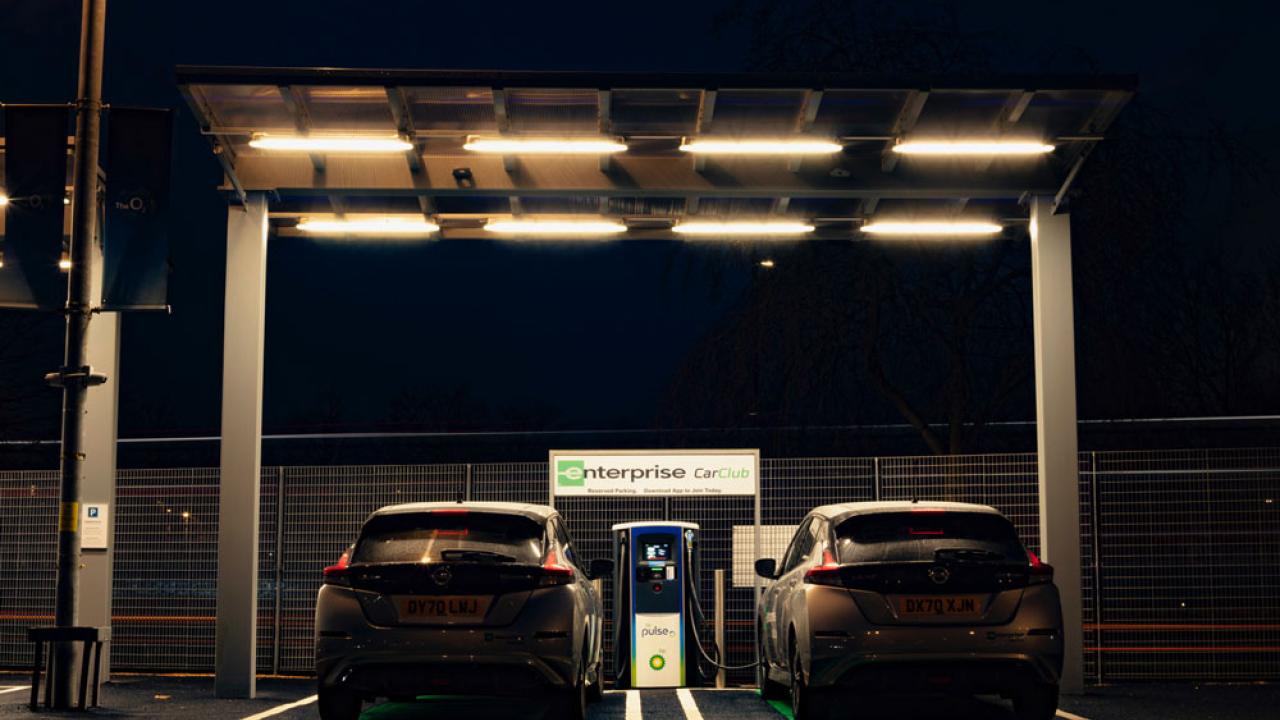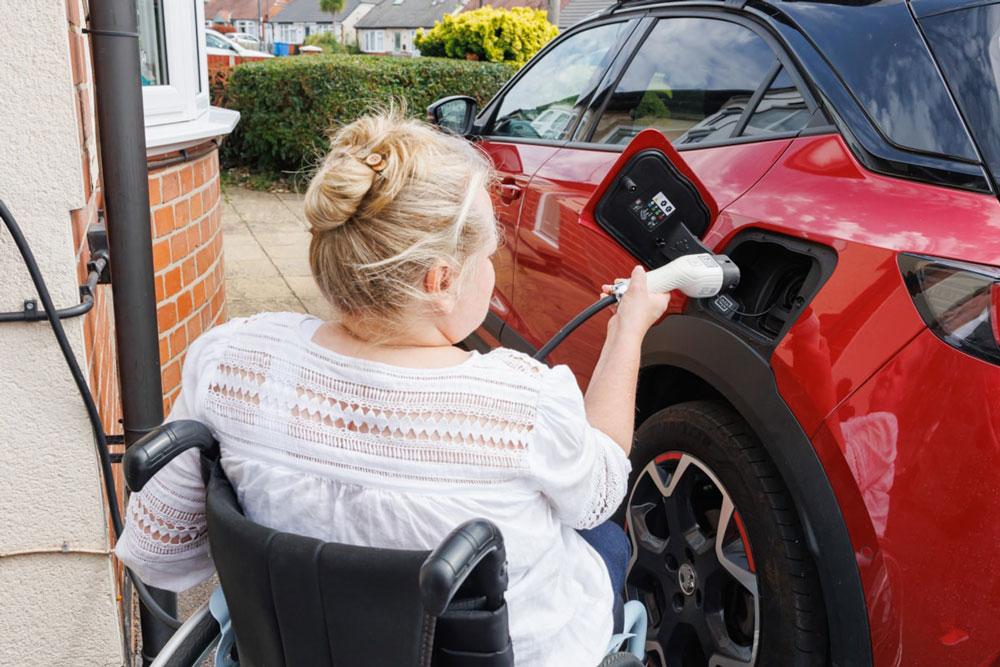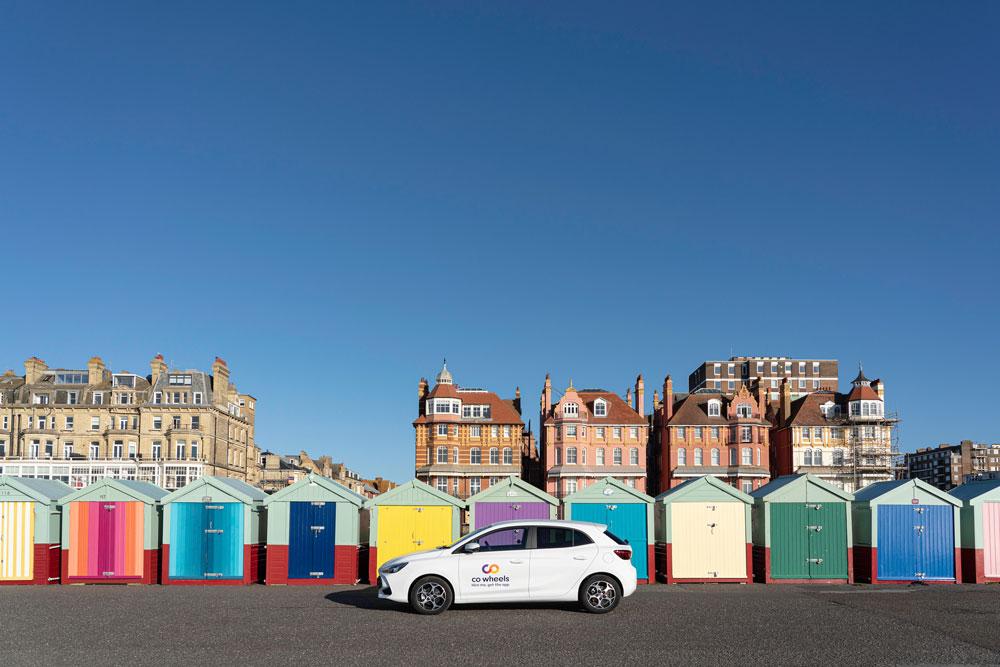The Defence Science and Technology Laboratory (DSTL), an Executive Agency of the Ministry of Defence, has worked with Enterprise Mobility to offer its staff car club access to enhance the sustainability of its business travel.
Nearly 100 Enterprise Car Club vehicles are now deployed on-site at three locations in Wiltshire and Hampshire, making DSTL's car club one of the largest on-site business car club fleets in the UK.
The on-site car club has significantly reduced the need for vehicle deliveries and collections. This has reduced business mileage by an estimated 372,000 miles and saved more than 100 tonnes of carbon dioxide equivalent (CO2e) supply chain emissions within a 12-month period (February 2022 to January 2023).
This emission saving is equivalent to flying from London Heathrow to Sydney, Australia more than 30 times.
The on-site car club programme means employees can opt for public transport for their daily commute. This helps to minimise traffic and noise pollution, while providing access to vehicles at work for essential business travel.
The Dstl workforce can also enrol in the Enterprise Car Club on-street network, granting access to more than 1,500 vehicles in 200 locations across the UK, including many residential neighbourhoods and regional transport hubs.
Alternatively, Dstl employees can rent vehicles for business travel through Enterprise Rent-A-Car’s extensive branch network. This flexibility is particularly beneficial during peak periods. It also ensures that Dstl’s workforce has access to vehicles at the office or at home, even in rural locations.
Dstl employees book their vehicles via the Enterprise Travel Direct (ETD) platform on their phones or desktops.
Dstl’s car club fleet comprises an increasing number of electric vehicles, allowing employees to opt for zero-emission transportation options.
The dedicated car club vehicles are equipped with telematics to capture data on utilisation, mileage and emissions to help tailor Dstl’s approach to business travel. For instance, by reviewing journey distances, Dstl can determine the number of vehicles that could transition to electric vehicles in the future.
As part of the bespoke package, Enterprise Mobility has assigned a dedicated professional responsible for on-site vehicle servicing and maintenance, which includes cleaning and minor repairs.
John Barber, Principal Estates Contract Manager at Dstl, comments: “We are incredibly proud of the collective effort and collaboration that has led to this remarkable outcome.
“The emission savings resulting from the expansion of our dedicated Enterprise Car Club programme exemplify the immense potential of business car clubs in driving positive environmental change.
“One of the key advantages to having the vehicles on site is that there is a lesser need to transport vehicles to and from the rental branches. This reduction in miles travelled not only contributes to the improvement of local air quality, but also helps to ease traffic congestion, particularly during peak travel times within the areas where we operate.
“These benefits extend beyond our own operations, positively impacting our local communities and fostering a more sustainable transportation system.”
Andrew Bland, Head of Business Rental Development for the UK and Ireland at Enterprise Mobility, adds: “There has been strong evidence of the potential of on-site car clubs in helping to reduce emissions from employee travel, and Dstl is an excellent and large-scale example.
“On-site car clubs act as a catalyst for better employee travel habits. The evidence from this programme is that employees commute less by car, for example, because they know there’s a vehicle at the office if they need one for a business trip.
“Dstl’s commitment to being a responsible member of the community and aligning its
supply chain with its social value priorities is at the forefront of its business travel approach – and it is also demonstrating the value of collective effort and collaboration to think differently about employee mobility.
“Any organisation with employees who drive personal cars for work, or that is running a pool car fleet, can potentially benefit from an on-site car club.”







